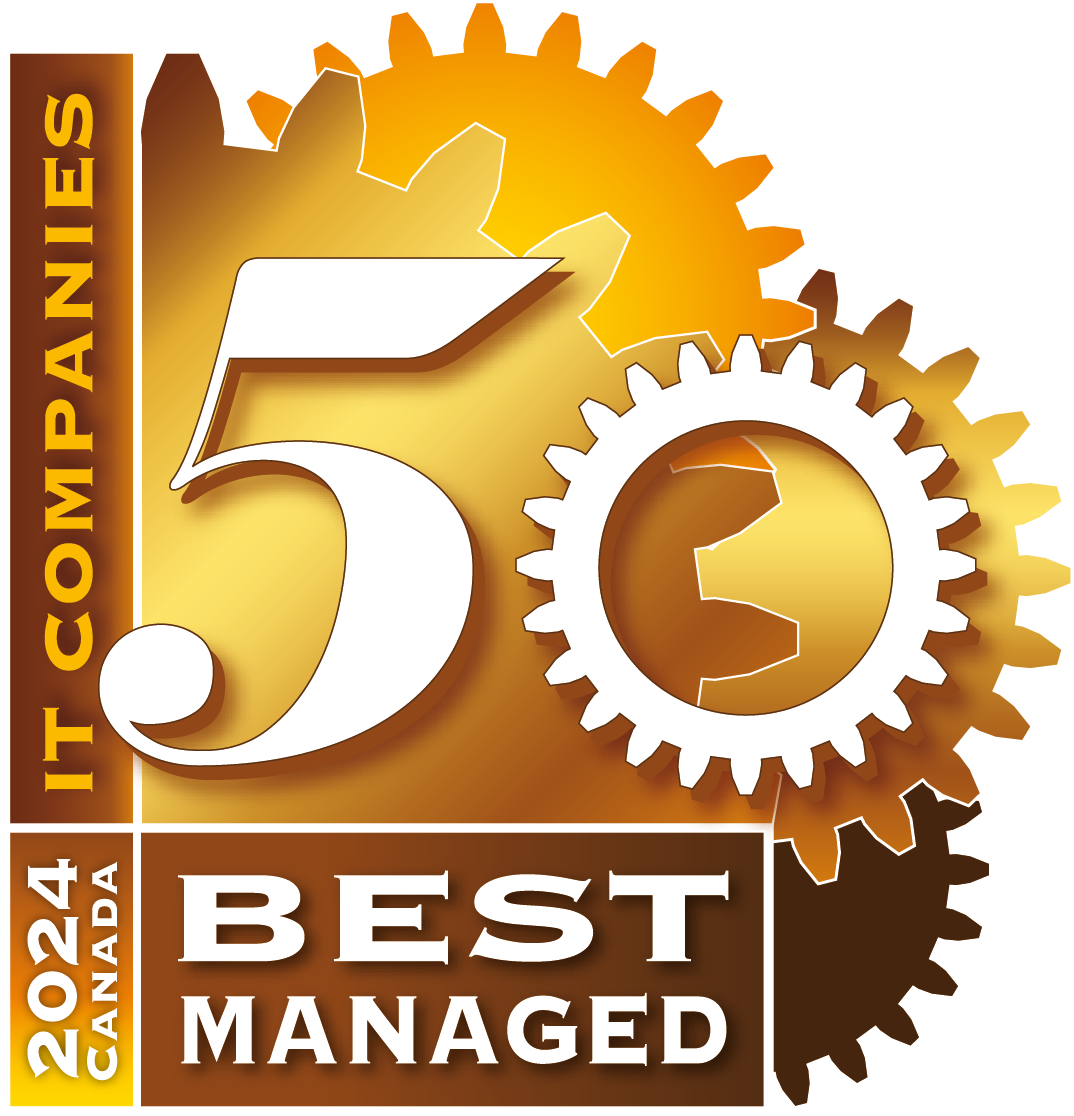While all healthcare organizations are responsible for maintaining strong IT security and compliance, the reality is that very few have the internal resources to fully manage these demands. Clinics and long-term care facilities often struggle with limited budgets and small staff teams, making it challenging to dedicate resources to IT and cybersecurity, despite the high stakes. Many Canadian healthcare providers are finding that traditional in-house IT or ad hoc tech support is no longer enough. That’s where Managed IT Services come in. But what makes Managed IT different for healthcare? And more importantly, how can it help your practice stay compliant and secure in today’s fast-changing landscape?

Healthcare IT Isn’t Just About Keeping the Lights On
While most businesses can suffer downtime or a data breach and recover, healthcare providers face much higher stakes. In this sector, IT failures don’t just disrupt operations; they can put patient safety and sensitive data at risk.
Managed IT services for healthcare are designed with these realities in mind. They offer more than just helpdesk support or network management; they provide proactive, compliance-driven technology solutions tailored to the unique needs of medical practices, clinics, and healthcare institutions.
Key Ways Managed IT Services Support Healthcare Providers
If you’re running a clinic, medical office, or long-term care facility, here’s what you might be missing without a specialized healthcare-focused IT partner:
- Compliance Is Built In, Not Bolted On
Unlike general businesses, healthcare organizations are governed by legislation that dictates how patient data must be handled. In the U.S., it’s HIPAA; in Canada, we follow PHIPA and PIPEDA. A healthcare-focused IT provider understands these laws and integrates them into every layer of service, from data encryption and access controls to audit-ready documentation and security risk assessments.
That includes:
- Data encryption at rest and in transit
- Secure backup and disaster recovery
- Access controls and audit trails
- Risk assessments and compliance documentation
Compliance is not a one-time project. It’s an ongoing process that requires the right technology, regular reviews, and staff training. Managed IT services help ensure that all systems stay aligned with evolving regulatory requirements, especially for healthcare providers who often lack the internal resources to manage this themselves.
- Bridging the Resource Gap with Government Support
Most healthcare organizations understand the importance of IT security and regulatory compliance, but many struggle to dedicate the necessary internal resources to achieve it. Smaller clinics and long-term care facilities often lack full-time IT or cybersecurity staff, despite facing the same regulatory pressures as larger hospitals.
This resource gap is a common challenge across the healthcare sector. Fortunately, the Government recognizes this and offers targeted financial support. Health Canada, Ontario Health, LHINs, and other agencies provide grants, loans, and funding programs specifically designed to help healthcare providers build out their IT infrastructure and strengthen cybersecurity. These programs can significantly ease the burden of funding necessary security upgrades.
A knowledgeable Managed IT partner can guide you in identifying and applying for these programs to strengthen your security posture without overextending your internal resources or your budget.
- Advanced Cybersecurity Tailored to Medical Risks
Unfortunately, healthcare is one of the top targets for cyberattacks. Patient records are rich in personal and financial data, making them a goldmine for threat actors. Many small to mid-sized clinics lack the in-house cybersecurity resources to mount a proper defence. This is where a managed IT partner shines. They offer proactive threat detection, 24/7 network monitoring, endpoint protection, and advanced firewall management, all tailored to the healthcare environment. Phishing simulations and additional staff education further help to reduce human error, which remains a leading cause of breaches.
- Support for Clinical Software and Devices
Your practice likely uses a combination of EMR/EHR systems, imaging platforms, scheduling tools, and telehealth solutions. A general IT team may struggle to support these systems or waste your time bouncing between vendors. A specialized managed IT provider knows how to work with these tools, manage vendor relationships, and ensure everything runs smoothly.
- Business Continuity and Disaster Recovery
What happens if a ransomware attack locks you out of patient records? Or perhaps a power outage brings your server down during a busy clinic day? With managed IT, business continuity planning and disaster recovery aren’t afterthoughts; they’re built into your support strategy. Your data is regularly backed up in secure, encrypted environments. Recovery plans are tested, documented, and ready to deploy, minimizing downtime and ensuring care delivery isn’t disrupted.
- Secure Remote Access and Mobility
As healthcare teams work across multiple locations or increasingly from home, secure and reliable remote access is essential. Managed IT providers offer solutions like VPNs, virtual desktops, and multi-factor authentication, making remote work seamless and compliant. This helps clinicians stay connected without sacrificing security.
What to Look For in a Healthcare-Focused MSP
Not all managed service providers are equipped to handle the demands of healthcare. You’ll want a partner who understands your clinical workflows, has experience with Canadian healthcare regulations, and offers 24/7 support with a security-first mindset.
Look for:
- Experience with PHIPA, PIPEDA, and healthcare-specific technologies
- A proactive approach to cybersecurity, including monitoring and threat detection
- Familiarity with EMR platforms, diagnostic tools, and telehealth systems
- A clear disaster recovery and data backup plan
- Staff education and compliance training are built into the service model
Fusion Computing’s Perspective
At Fusion Computing, we’ve helped healthcare providers across Canada strengthen their IT posture while maintaining full regulatory compliance. From small practices to multi-location clinics, we understand the unique pressures that come with storing and securing personal health information.
Our managed IT services are designed with privacy, availability, and accountability at the core, because in healthcare, technology can literally save lives. In addition to delivering expert IT services, Fusion Computing can also help healthcare providers identify and apply for government grants and funding programs to make essential security upgrades more attainable.
Final Thoughts
We understand that most healthcare organizations don’t have the time, people, or budget to keep up with these demands on their own. That’s why working with a partner who can not only provide IT support but also help you tap into available funding is so critical.
If your current IT support doesn’t check all these boxes, or if you’re unsure how to access available government funding, it may be time for a conversation.
Contact Fusion Today
Looking to strengthen your IT while staying compliant? Contact Fusion Computing for a no-obligation healthcare IT assessment. We’ll help you identify vulnerabilities, evaluate compliance readiness, and design a tailored solution that fits your clinic or healthcare organization.
FAQs
Why exactly is managed IT so crucial for healthcare providers?
Because healthcare data is highly sensitive and heavily regulated. Managed IT ensures systems are secure, compliant, and resilient so that providers can focus on patient care, not IT issues.
Is PHIPA compliance mandatory in Ontario?
Yes. PHIPA (Personal Health Information Protection Act) is mandatory for any organization that collects, uses, or discloses personal health information in Ontario. Non-compliance can lead to serious penalties and reputational damage.
Can my regular IT provider handle healthcare compliance?
Most general MSPs don’t have the specialized knowledge or tools required for healthcare compliance. A healthcare-focused MSP understands the nuances of privacy laws, medical applications, and risk management, and builds those into every aspect of their service.
